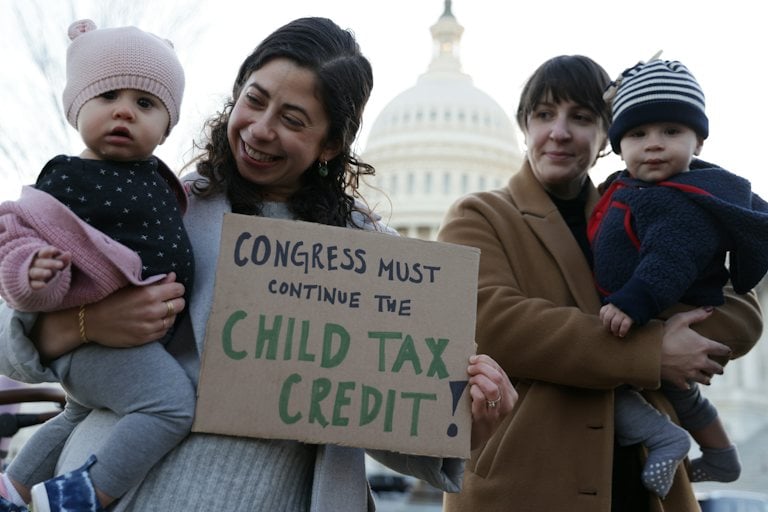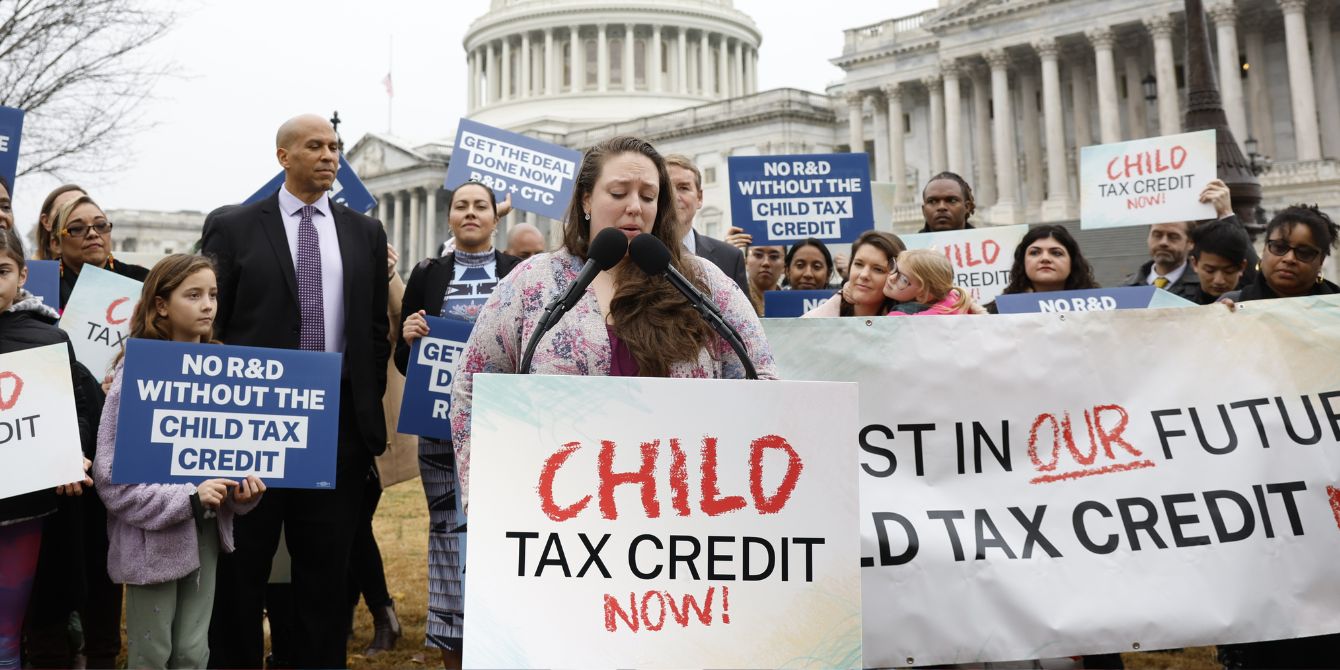As U.S. lawmakers work towards averting a government shutdown reports indicate a potential bipartisan agreement on a separate deal. This deal proposes restoring President Joe Biden‘s 2021 expansion of the child tax credit exchanging it for the reinstatement of business investment deductions. Despite the expected addition of at least $100 billion to the budget deficit over two years both sides express confidence in limiting the cost to $70 billion.

Strategic Budget Trade-offs
The proposed agreement, though potentially adding to the budget deficit focuses on the child tax credit’s significant impact on reducing poverty and stimulating economic growth. Biden’s one-year expansion saw child poverty plummet to a record low of 5.2%, emphasizing the crucial role this policy plays in societal well-being.
The cost of not addressing child poverty as highlighted by a 2018 study extends beyond $1 trillion annually, impacting worker productivity, crime rates, and healthcare costs. In parallel, the deal includes the revival of business tax deductions aiming to sustain Biden’s onshoring initiatives and prevent a potential reduction in business investments.
Despite concerns about the budget deficit, experts argue that the benefits of the proposed deal such as lifting 2.1 million children out of poverty and potentially growing the economy by $325 billion annually present a compelling case for its approval. The article emphasizes the need for intelligent and efficient spending cuts and tax increases acknowledging the necessity of addressing the rising deficit responsibly.
READ ALSO: Lottery Winner Strategically Delays Claiming $50,000 Prize to Keep Jackpot Low Profile
Economic Impact and Responsible Fiscal Management
Economic models from the Tax Foundation estimate potential GDP reduction without the proposed amortization reforms for business deductions. The child tax credit’s success in lifting 2.1 million children out of poverty is underscored by Census Bureau data emphasizing the positive outcomes accompanying lower poverty rates.
While acknowledging the necessity for major spending cuts and tax increases the article urges a strategic approach to address the rising deficit. It emphasizes the importance of making intelligent and efficient decisions rather than passing up the potentially impactful deals presented by the proposed agreement.




